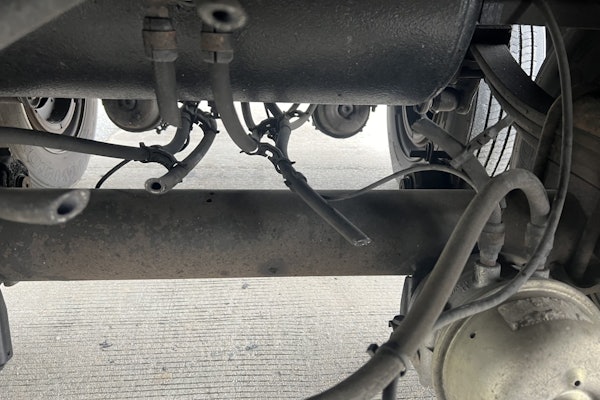Long-haul truckers spend many days on the road, and it’s easy for them to neglect their health. Many truckstops are beginning to house doctors and other medical professionals, giving truckers easier access to medical care. Truckers should take advantage of these services and not ignore signs of illness, including colon-related problems.
Colon cancer and digestive disorders are unpleasant topics for most. Although this can be an embarrassing subject, it’s important to understand what causes colon cancer, what the risk factors are and what can help prevent this cancer from occurring.
When our bodies begin developing, cells of all types form and create tissues and organs. When development is complete, the cells stop growing and reproduce only as needed. According to the website for the Colon Cancer Alliance, if a cell continues to grow and invades other tissues, a cancer develops. When this occurs in the lining of the large intestine, it’s called colorectal cancer. This cancer often begins as benign polyps, which turn into cancers if left untreated.
Colorectal cancers are the second largest cause of cancer death in the United States, but early detection and removal of the polyps can save many patients. When discovered early, colon cancer is highly treatable even if it has spread into lymph nodes. Surgical treatment followed by chemotherapy is successful in most cases, and when the cancer has spread into other vital organs, treatment can prolong life.
Dr. Donald E. Mansell of Paradise, Calif., has a website, www.maxinet.com/mansell, that explains colon polyps and colon cancer in detail. Mansell says polyps can cause bleeding and are usually benign.
There can be single or multiple polyps, and the polyps can cause painless rectal bleeding or bleeding not apparent to the naked eye. People with colon cancer may have no symptoms, or non-specific symptoms, until the cancer is advanced.
According to Mansell, people with right-sided, ascending colon tumors often experience fatigue and weakness, and have an iron deficiency. Left-sided, descending colon tumors are easier to detect because that side of the colon is more formed. Changes in bowel habits, cramps in the left lower side and perforation are symptoms.
The chance of developing polyps increases with age, and if the polyp isn’t removed, the chance of developing cancer increases.
There are a variety of methods used to detect colon cancer, including barium enemas, sigmoidoscopy and colonoscopy. If a mass is found, a biopsy must be performed.
The American Cancer Society recommends that, starting at age 50, individuals receive an annual fecal hemoccult screening, in which the feces are examined for evidence of blood. Everyone should receive an annual rectal exam beginning at age 40, and beginning at age 50 a sigmoidoscopy should be performed at least every three to five years, depending on your risk factors.
If you are diagnosed with colon cancer there are a variety of treatments, and the survival rate is high. Surgery may be required, as well as chemotherapy and other cancer treatments.
Put the embarrassment aside and talk to a physician if you are having problems or if any of the risk factors apply to you.
Risk Factors of Colorectal Cancer
The cumulative lifetime risk for developing colorectal cancer is 1 in 20. The following are risk factors for colon cancer:
- Age: The strongest risk factor for colorectal cancer. The incidence rate rises from 10 per 100,000 at age 40-45 to 300 per 100,000 at age 75-80.
- Gender: Men are more likely to develop colon cancer than women.
- Race: Black Americans are more likely than white Americans to be diagnosed with colon cancer.
- Habits: Smokers, drinkers, sedentary and obese people are more likely to be diagnosed with colon cancer.
- Family history: Those whose close relatives have a history of colon cancer or polyps.
The following are preventive measures to reduce your risk of colon cancer:
- Eat a diet that is high in fruits, vegetables and roughage. Add more
calcium to your diet. - Decrease or stop your intake of alcohol and cigarettes.
- Exercise daily.
- Cut your meat, fat and protein consumption.
- Take one coated adult aspirin daily.
- Reduce your weight if needed.
Source: www.maxinet.com/mansell
Dr. Donald E. Mansell






